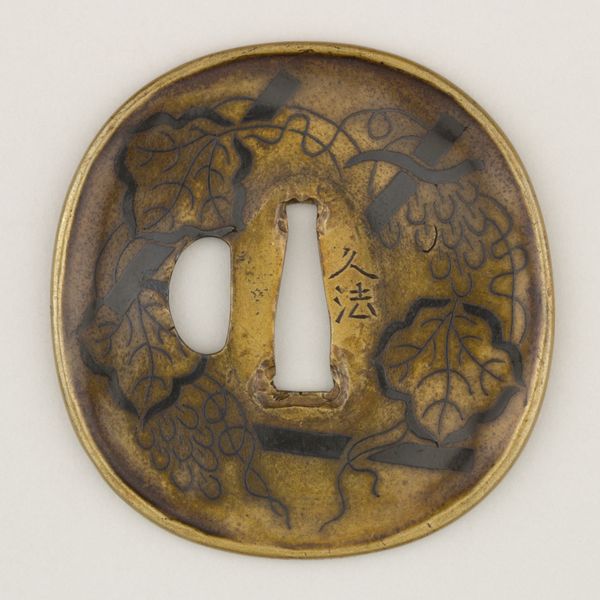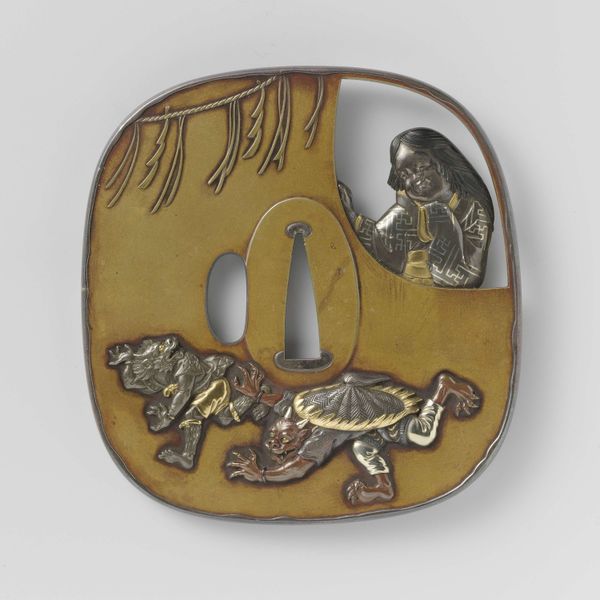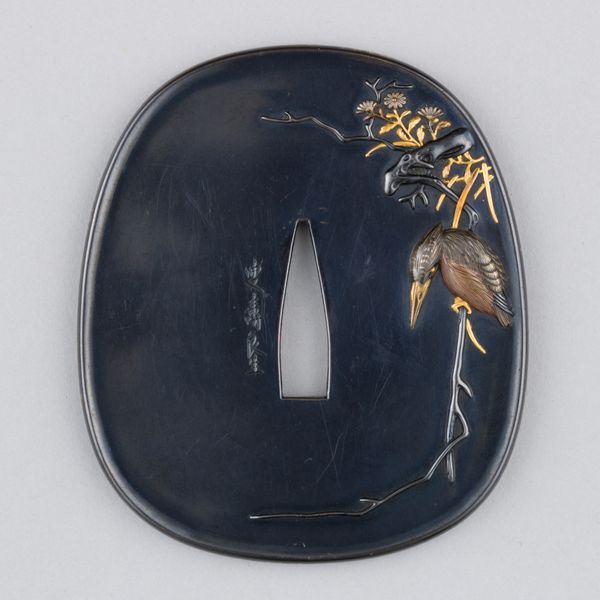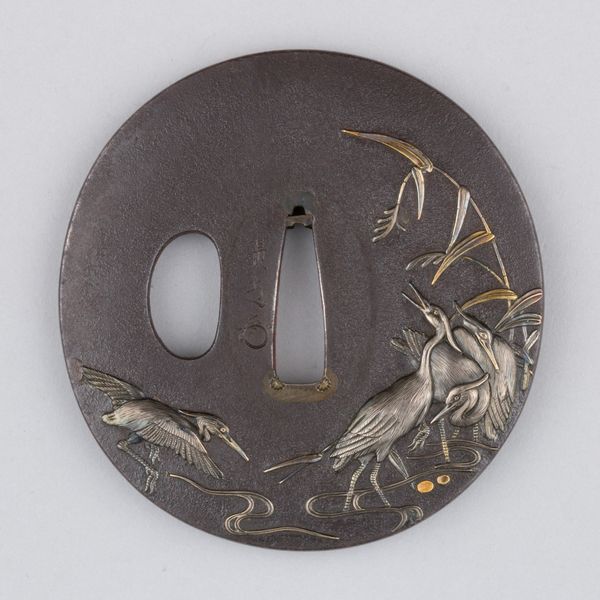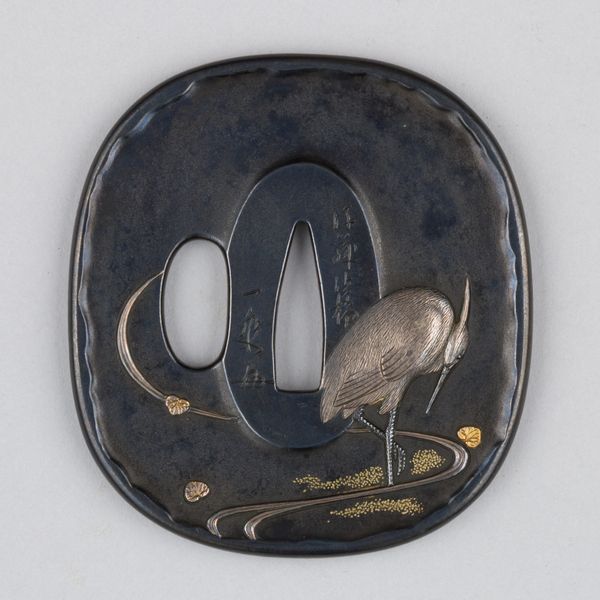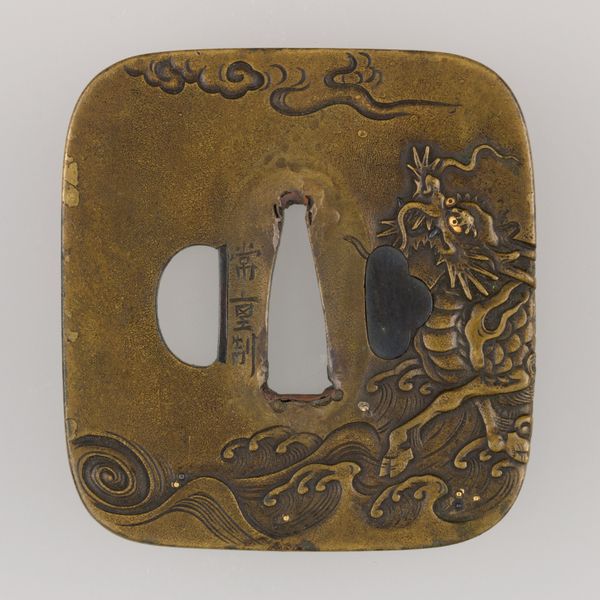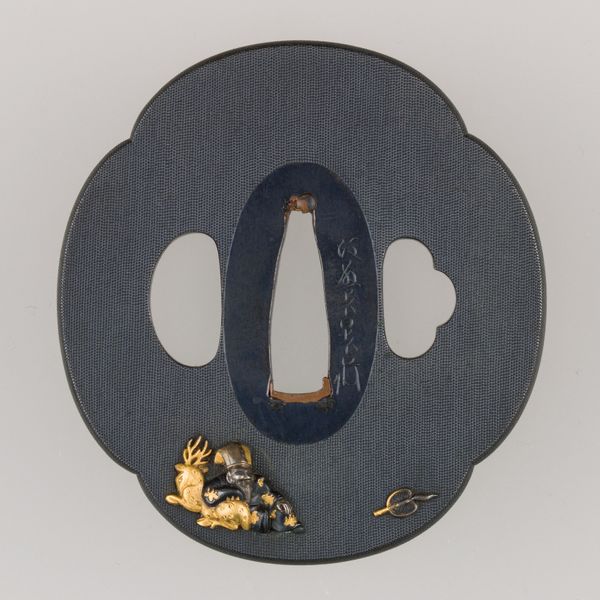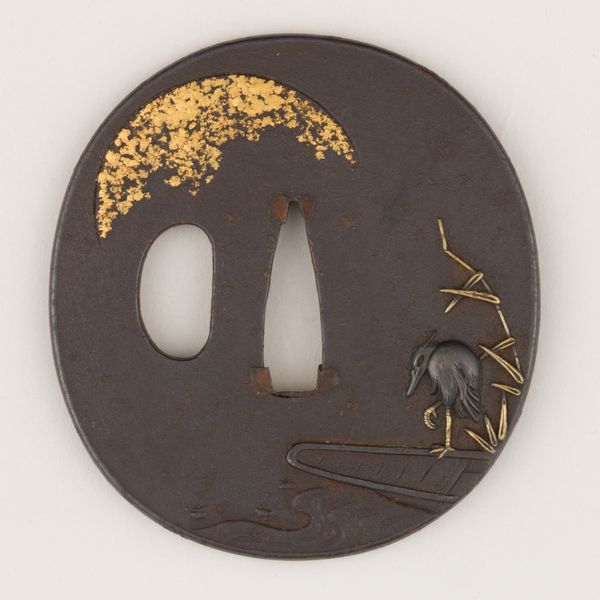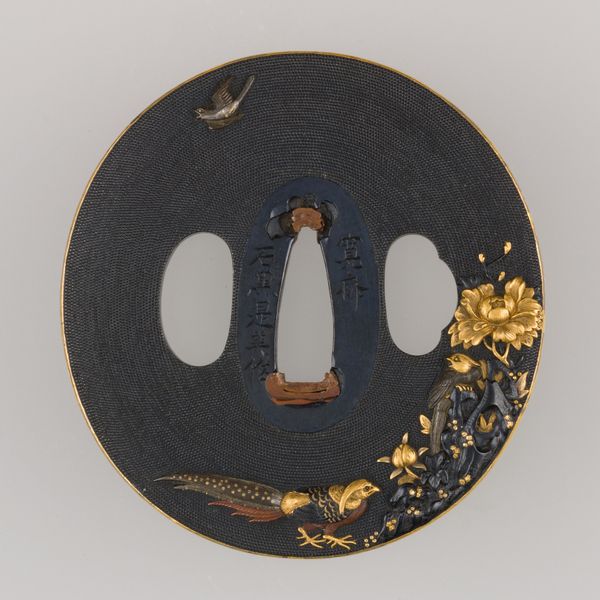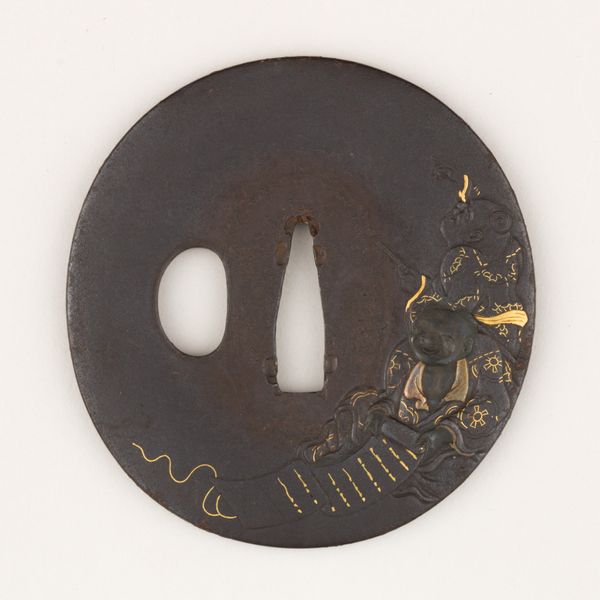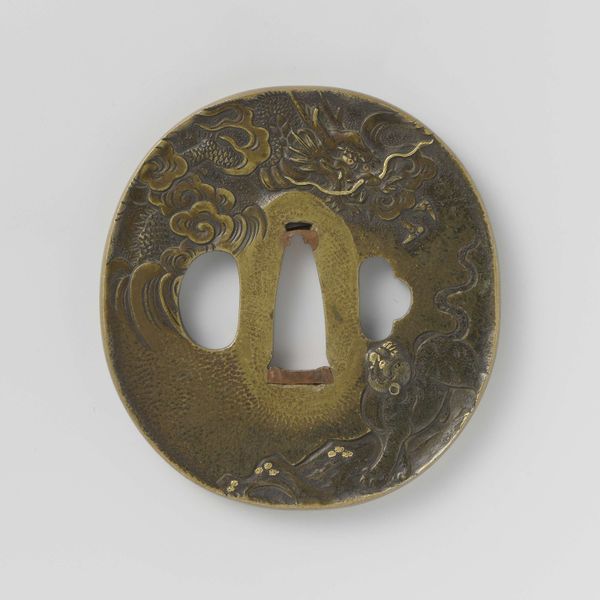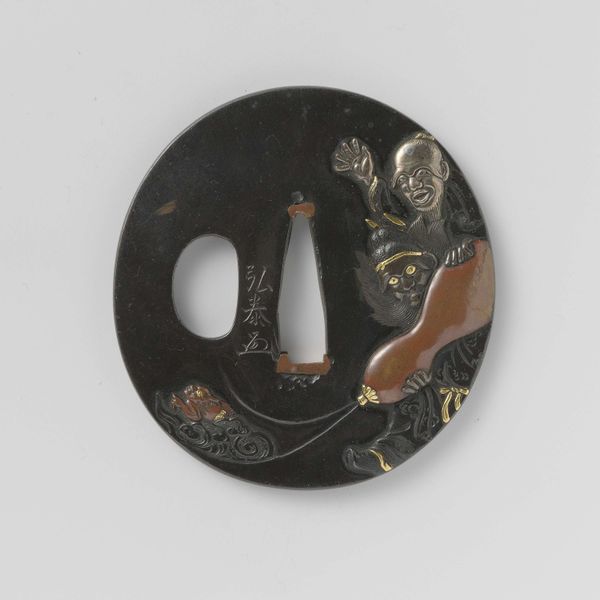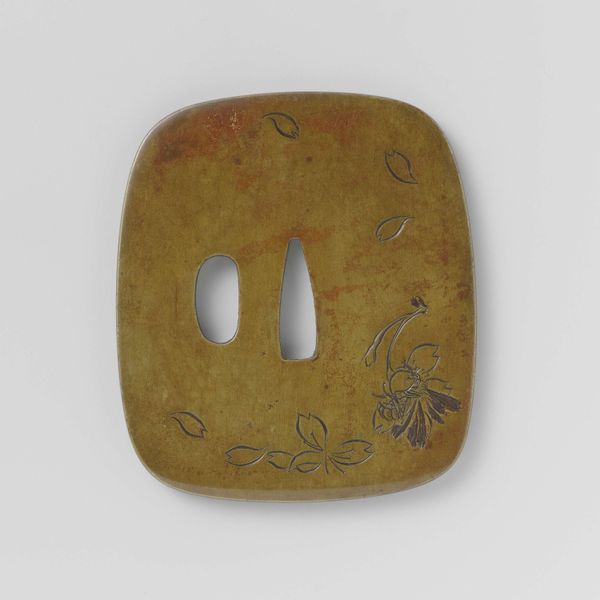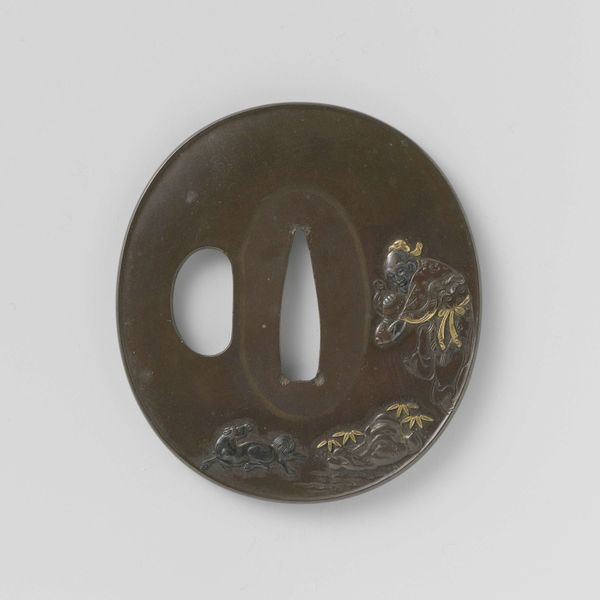
Sword Guard (<i>Tsuba</i>) Depicting Hanshan and Shide (寒山拾得図鐔) 1725 - 1781
0:00
0:00
metal, bronze, sculpture
#
portrait
#
medieval
#
metal
#
human-figures
#
sculpture
#
asian-art
#
bronze
#
japan
#
sculptural image
#
figuration
#
sculpture
#
ceramic
#
human
#
decorative-art
#
sword
Dimensions: H. 2 7/8 in. (7.3 cm); W. 2 5/8 in. (6.7 cm); thickness 1/4 in. (0.6 cm); Wt. 6.1 oz. (172.9 g)
Copyright: Public Domain
Editor: So this piece is a sword guard, or *tsuba*, from between 1725 and 1781 by Yoshiteru. It depicts Hanshan and Shide. It's currently at the Metropolitan Museum of Art. I am immediately drawn to its intimate scale. Given its function, the figures depicted feel weighty, culturally. How would you interpret its imagery in relation to its intended function and audience? Curator: That’s a perceptive question. The *tsuba* becomes a canvas not just for decoration, but for displaying cultural values. This piece invites us to consider the warrior class that would have used swords bearing guards like this. Editor: Right, the samurai. Curator: Precisely. By portraying Hanshan and Shide, Zen Buddhist figures known for their unconventional wisdom, on a *tsuba*, what message was being conveyed? The sword, of course, symbolizes power, and the samurai, in turn, loyalty and obedience to those in positions of power. Editor: So, it is less about physical prowess and more about philosophical insight or perhaps even humility in power? Curator: Exactly. It suggests the samurai were perhaps concerned with their spiritual development and aligning with these tenets, beyond the battlefield. Who these figures were allowed the samurai patron to align with those values. Does that give you a new perspective? Editor: It does. It reframes my understanding, highlighting the intersection of martial culture and philosophical ideals within a specific historical context. Thank you for the enlightenment! Curator: The pleasure was all mine. Thinking about these objects in context reveals so much.
Comments
No comments
Be the first to comment and join the conversation on the ultimate creative platform.
